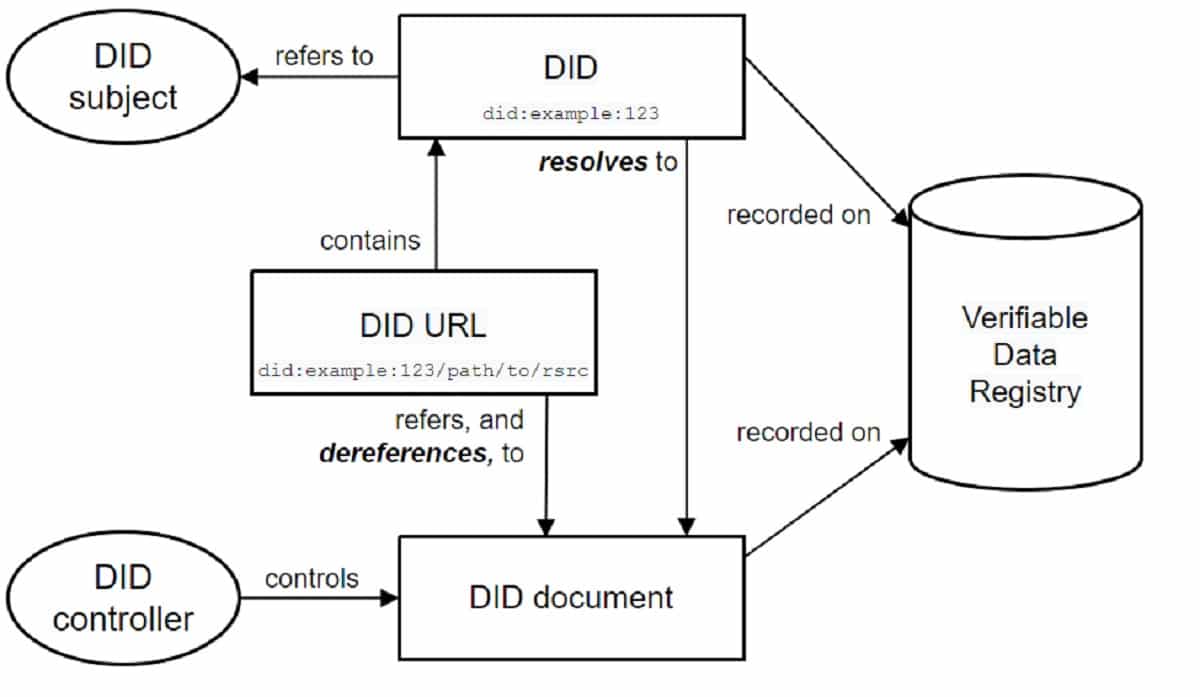
Tim Berners-Lee recently announced the decision to convert the specification which defines the decentralized identifiers for the Web ( DID , Decentralized Identifier), in the state of recommended standard, thereby nullifying the objections raised by Google and Mozilla.
The specification DID introduces a new type of global identifiers only ones that are not linked to individual centralized organizations and services, such as domain registrars and certification authorities. The identifier may be associated with an arbitrary resource and generated by systems trusted by the owner of the resource.
Identifier Authentication uses proof of ownership authentication based on cryptographic mechanisms, like digital signatures. The specification allows various methods for distributed control and retrieval of identity information, including blockchain-based methods.
The format of the new URI is formed as "did:method:unique_identifier", where "did" specifies the new URI scheme, "method" indicates the mechanism for handling the identifier, and "unique_identifier" is a method-specific resource identifier.
The field with the method specifies the name of the service used to store verified data, which ensures the uniqueness of the identifier, determines its format, and provides the binding of the identifier to the resource for which it was created. The URI with the ID is converted to a JSON document with metadata that describes the requested object and includes public keys to verify the owner.
Method implementations are outside the scope of the DID standard, are defined in its specifications, and are kept in a separate registry.
Today 135 methods have been proposed based on different blockchains, cryptographic algorithms, distributed technologies, decentralized databases, P2P systems, and identification mechanisms. Also it is possible to create DID links on centralized systems, for example, the web method allows traditional hostnames to be bound (for example, "did:web:example.com").
Google's objections are related to the separation of the specification for the general mechanism of decentralized identifiers of the specifications for the final implementations of the methods, which does not allow to analyze the correctness of the main specification without studying the specifications of the methods.
Publishing the main specification when the method specifications are not ready makes revision difficult, and Google has suggested that standardization of the general DID specification be postponed until some of the best methods are ready for standardization, as in the process of method standardization, subtle points may arise that require the main specification to be finalized.
Mozilla's objection is that the spec doesn't adequately drive portability, leaving the problem to the method registration side.
Over a hundred methods have already been proposed in the registry, created without regard to compatibility and unification of standard solutions. In its current form, it is recommended to create a new method for each task, rather than trying to adapt existing methods to suit your needs.
The W3C's position is that standardization of the DID specification, which defines a new extensible identifier class and associated syntax, will foster method development and consensus on method standardization.
In its current form, there is sufficient evidence of the applicability of the main specification to solve problems that are in demand in the community that develops decentralized technologies. The proposed implementations of methods should not be judged by analogy with new URL schemes, and the creation of a large number of methods can be seen as conforming to the base specification for the needs of developers.
Standardization of certain methods is seen as a more difficult task, in terms of achieving consensus among developers, than standardizing on a common class of identifiers. Therefore, the adoption of a common specification before method standardization is considered a solution that can cause less potential harm to the community that implements decentralized identifiers.
Finally if you are interested in knowing more about it, you can check the details in the following link.